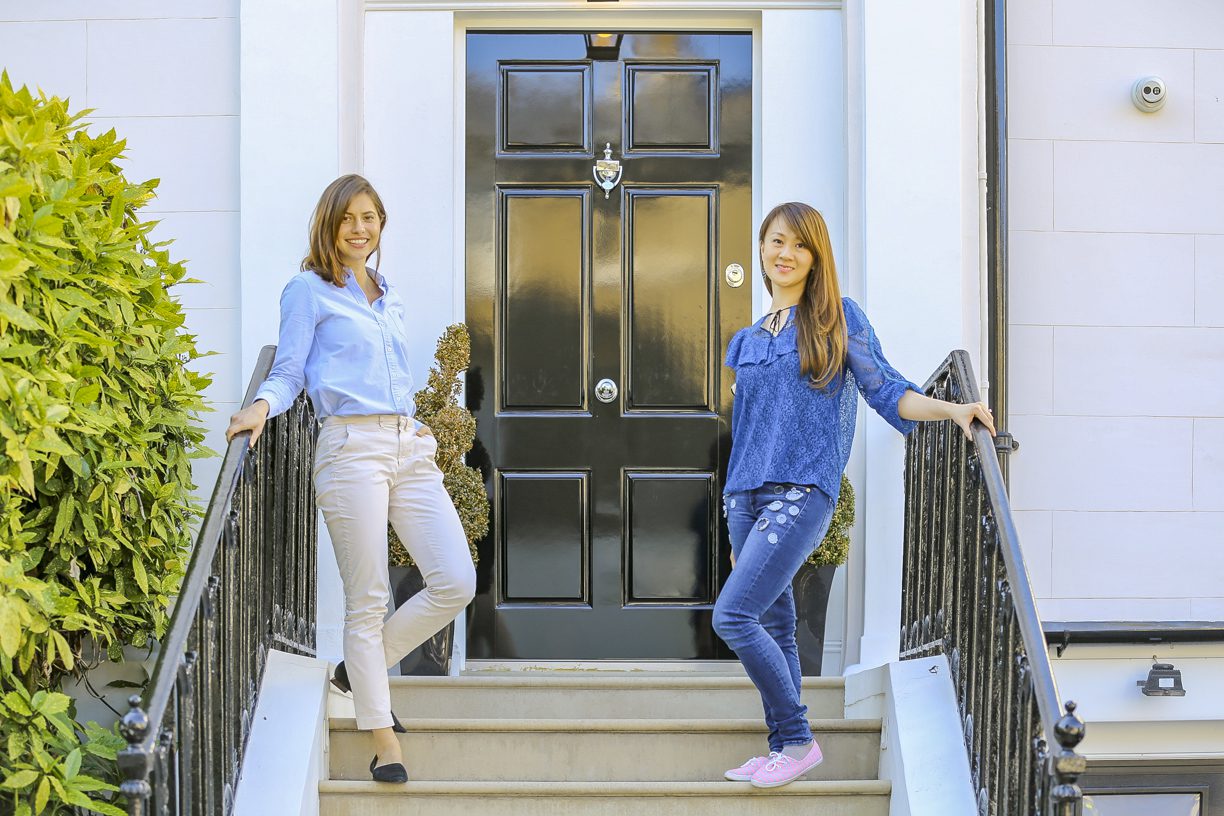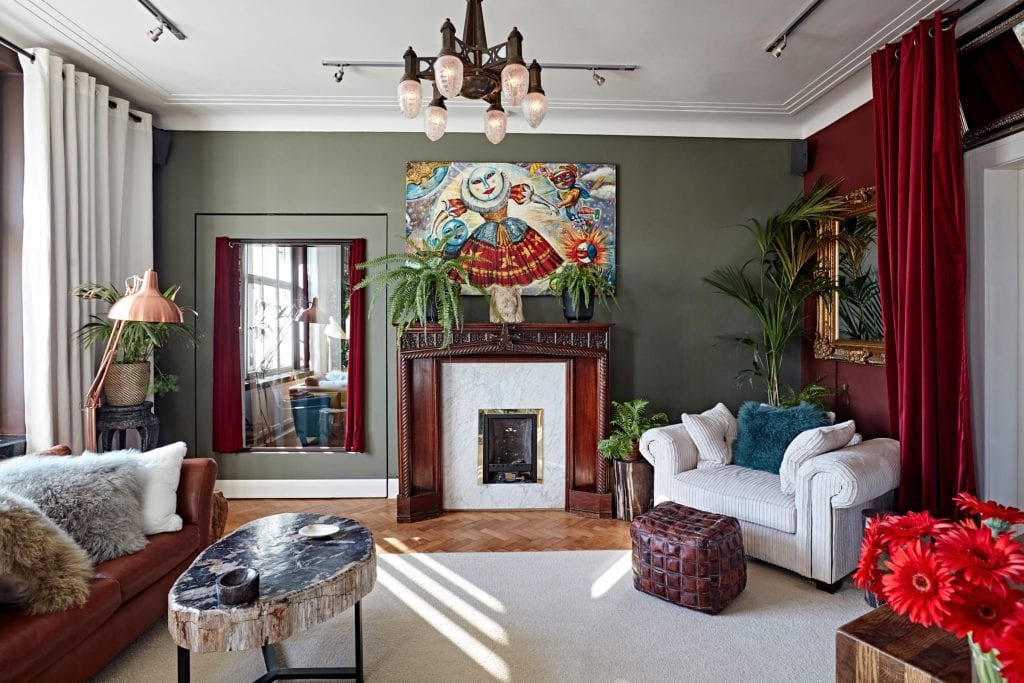This Corporate Housing Startup Is Poised to Make Steady Gains — At the Expense of Hotels

Skift Take
It’s almost becoming a cliche in these pandemic times — the start-up looking to take advantage of crisis-induced trends.
This time it’s over to the corporate housing sector, one that’s well-suited to the nervous business traveler, and a sector where fledgling booking platform AltoVita spots a chance to step up.
Its founders Karolina Saviova and Vivi Cahyadi incorporated the company at the end of 2016, before launching in January 2018 after a year of onboarding mostly “alternative accommodation” suppliers. This segment makes up 80 percent of its 20,000-strong inventory, with more traditional serviced apartments contributing the rest. The platform allows company travel managers to source and book long-term stays for their employees, for relocations or temporary projects and assignments.
It connects those travel managers to property management companies, property managers and homeowners. "We manage the managers," said Saviova, who claims AltoVita has automated the sourcing of this type accommodation, bridging the gap in a technology infrastructure that's historically been lacking these types of direct connections.
Up to now the startup has been financed by angel investors, mostly in the real estate sector, but in the next few weeks it's poised to announced its first institutional round of funding. It’s a relatively crowded market, up against the likes of Expedia, Booking,com and Airbnb for stays with a more personal feel, but AltoVita thinks it can find that sweet spot between stylish Airbnb homes and traditional, uniform serviced apartments.
The concept for AltoVita came out of the duo’s own disappointing experiences of frequently changing countries.
“We’ve both relocated many, many times throughout our careers, and it’s been hit and miss. This is what led to the creation of AltoVita,” said Cahyadi. “The idea was to help Airbnb travelers, so they don’t get this horrendous hit and miss experience. Our verification process is more stringent, we’re inspecting properties prior to every arrival.”
It’s quite a claim, but during Covid-era travel, the standard of hygiene stands to make or break a brand. There are other trends AltoVita wants to tap into as well, including talent mobility and cost cutting.
A Sector That's Going Places
Overall, hotels have had a rough ride, apart from those that managed to stay open for crisis workers. In China, the situation is improving but for large parts of Europe the outlook is bleak. Alternative accommodation and serviced apartments — the umbrella term for a type of a furnished apartment made available for longer stays, and often featuring larger living and sleeping areas, plus aspects like kitchens and washing machines — are faring better.
Serviced apartment provider Edyn, which operates the Locke, SACO, Moorgate and Wittenburg brands, claims they're more resilient than hotels as self-contained apartments combine the flexibility of apartment living with consistent levels of safety, hygiene and guest experience travelers are now proactively seeking as a result of the pandemic.
“During lockdown, our average length of stay increased from 10 days to 40 days. As we emerge from more severe lockdown measures, we are experiencing a considerable rise in demand,” a spokesperson told Skift.
Meanwhile, specialist agency CAP Worldwide saw "substantial" demand during the crisis, and since July that has stabilized as its corporate clients encourage their workforces to return to work.
“In many cases, the closure of hotels, guest houses and holiday homes created a higher demand for extended-stay options from sectors that would normally use lower cost alternatives that provide a hot breakfast, like construction, and social housing including the homeless or asylum seekers,” said its founder, Jo Layton.
London brand Stay, which has 169 apartments, said its average monthly occupancy this year has been 59 percent so far, up 10 percent on last year, with an average length of stay of 21 nights.
“Looking ahead to the rest of the year, our current average monthly occupancy rate is 51 percent, compared to 24 percent in the same period last year. Interestingly, our average length of stay has increased to 44 nights from September until December, compared to 9 nights in the same period last year,” a spokesperson said.
Booking windows are also shrinking, due to the uncertainty of the UK’s travel restrictions, so Stay added it expects occupancy to grow over the coming months.
Alternative Views
It's a growing market, so how does AltoVita propose to capitalize on it?
Its name could give it a headstart as “alternative accommodation” moves into the mainstream. Interest in short-term rental apartments and vacation rental homes is booming, and in August Booking.com revealed 40 percent of its new reservations in the second quarter were for alternative accommodations. Speaking at Skift Global Forum, Booking Holdings president and CEO Glenn Fogel said it's likely that awareness will remain for the long haul.
Advertising technology company Koddi is also expanding its services to reach owners of these types of properties.
For corporates, longer term stays will likely pick up as those employees working from home eventually start reconnecting — either to collaborate or for their own sanity. “We’re specializing in catering to the longer stays, where the need is mobilizing talent, not sales meetings,” said Cahyadi. “Companies move talent, sometimes they need to be on the same timezone. And instead of a one-bedroom apartment, they’ll pick a two-bedroom apartment to use one room for office space.”
Bookings tend to range from 30 days up to six months, although it's veering longer to keep costs down. Saviova said a company's employees may even rotate in shifts when using the same house over long periods. "What we’re trying to showcase is that alternative types of providers are perfectly able to deliver the same quality (as serviced apartments), although their portfolio doesn’t need to be under one roof," she added.
Yet while there are opportunities in a crisis, they come at a cost. As hotels are suffer, so too are city centres losing out as both tourists and employees shun crowded places.
"Sadly, the city centres experienced a lesser demand than the regional areas during the crisis from a market share perspective, and it would seem that this is continuing even with the encouragement to return to the office," noted CAP Worldwide’s Layton.
"This trend is the absolute opposite of normal demand. London and Edinburgh (much like New York) always used to lead the way for rate and occupancy across the country, but secondary cities or regions are experiencing sustained demand, possibly also due to less saturation of products in these markets."
Where Next?
AltoVita has ambitious plans. In 2018 it launched with a few hundred properties in four cities. Today it's expanded to 20,000 corporate homes in 80 markets and has won new clients, with bookings growing. June performed better than February, while July and August recorded 25 percent month-on-month increases.
And Cahyadi claims investors like AltoVita's business model. "It's completely asset light, we’re not exposed to any unnecessary balance sheet risks," she said. The start-up has just recruited a new sales and marketing head, who has 25 years of experience, although the pair aren't ready to say who just yet. They are also staying silent on the new funding, for now, but said the extra cash will be spent on marketing, product development and supplier onboarding. It also wants to raise awareness via brand ambassadors. And from the current 40 markets, it's setting its sights on expanding to 800.
Meanwhile, the start-up is launching its own virtual Corporate Home Awards event on November 19 for property management companies, property managers and homeowners. "This will allow them to learn from one another, with categories like best design, or family friendly, because a lot of them will be refurbishing their units, designing them for longer stays for business travelers," said Saviova. "We want to educate the wider market on short-term assignments."
As companies continue to shun traditional short-term business trips, longer stays and relocations will only increase in these uncertain times. For now, there's a strong business case for any company promoting safe and secure alternative accommodation.
"The pandemic, bizarrely, was beneficial for us," added Saviova. "Those companies used to corporate housing, and serviced apartment buildings, have now opened up to alternative accommodation."





